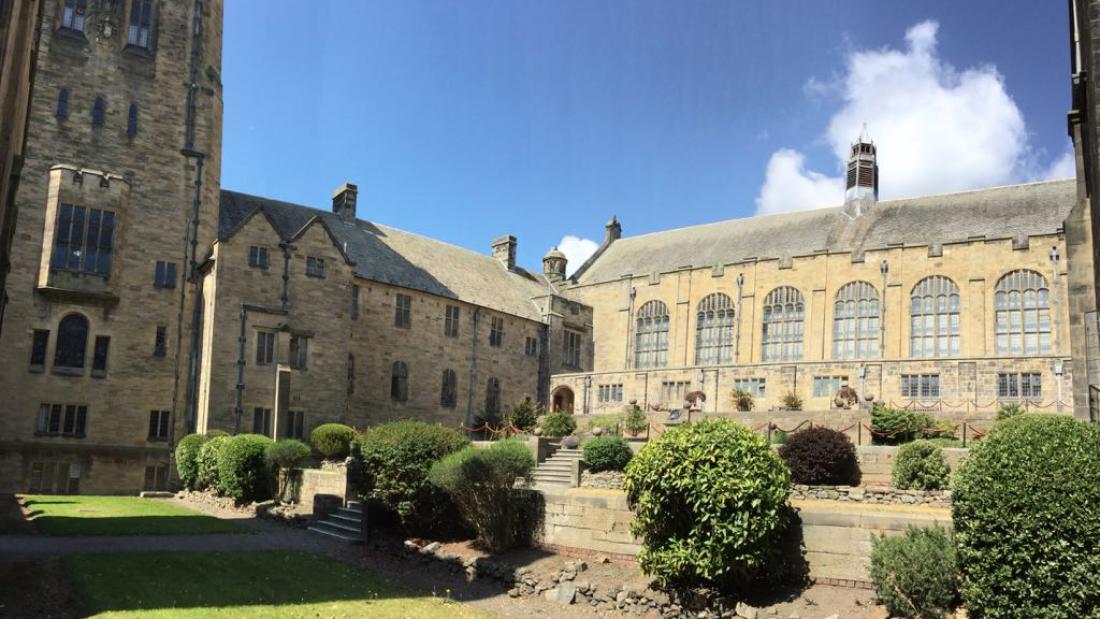A full MA is valued at 180 credits a Diploma at 120 credits and Certificate at 60 credits.
The first 120 credits are achieved by following a programme of taught courses. The final 60 credits will be achieved through dissertation after successful completion of the taught part of the course.
The course employs a wide range of teaching and learning strategies both formal and informal. These include: lectures individual study – some of it involving assigned readings - interactive discussion of case studies in class small group work and essay writing. The MA Criminology and Sociology very much employs the concept of “active learning” by students.
The programme is offered on a full-time and part-time basis.
Full Time Study:
In full-time mode the course normally lasts for a period of twelve months. Taught courses are undertaken September – May and the dissertation completed from May to September.
Part Time Study:
In part-time mode the course normally lasts for a period of two and a half years. Taught courses are undertaken from September to May over a period of two years and on successful completion of the 120 credits of taught courses the dissertation may be undertaken.
Taught Modules
Modules include:
Research Design and Strategy: The module is organized in terms of (a) principles of research design (b) issues of data collection and (c) data analysis. Topics covered include e.g. the definition and formulation of research problems and hypotheses the relationships between and the rationale for using particular research methods the relationships between empirical research and theory generation and theory testing different forms of sampling and potential bias in the interpretation of research findings. Students are taught how to access and use secondary data construct and critique questionnaires and interviews how to interpret measurement error and missing data and how to record data from experimental and quasi-experimental research. Training in the use of SPSS is an integral part of the module and takes place alongside the sessions dealing with surveys questionnaire design structured interviews and data analysis.
Research Process and Meaning: The module provides postgraduate level training in the main varieties of qualitative and mixed methods research in the social sciences including basic literacy in qualitative data analysis. Locating the research process in debates about situated knowledge reflexivity and subjectivity show how research design is unavoidably grounded in assumptions about the nature of the phenomena to be investigated and how researchers are implicated in the things they describe.
Students are taught how to generate qualitative data and how to apply a variety of analysis techniques. The use of ‘mixed’ methods is addressed through examples of text analysis visual interpretation and online social research. Training in the use of NVivo qualitative data analysis software is an integral part of the module and takes place alongside the sessions dealing with analysing conversation interviews observations ethnographic accounts texts and visuals.
Social Science in Action: This module provides training in social science research with a focus on the specialist degree studied. It draws upon generic social science research skills and knowledge and applies them to an empirical group project. The module begins with a consideration of some general issues underlying social science research in action (including the relation between theories and hypothesis research ethics field access). Students specify the topic for a joint research project in which they will develop their skills as empirical researchers. Students engage in hypothesis development research design data gathering data analysis and interpretation of the results.
Students have the option to continue their studies on the related module: Social Science in Action 2 in which the focus is on the use of interviews and questionnaires.
Key Issues in Criminology: The module covers aspects of the work of the police how citizens view law-enforcement institutions and how people react to crime and to opportunities to commit crime. Media portrayals of crime police and justice issues are also discussed.
Transnational Crime: This module focuses crime that transgresses national boundaries for example people trafficking and internet crime.
Comparative and International Criminal Justice: The module provides an international and comparative perspective on key areas of criminal justice. These include questions of the operation of systems of criminal justice in the UK and other countries.
Nationalism and Minorities: The module deals with those two phenomena and their relation using historical and current examples. Discussed are issues like the construction of identities.
Researching Community: This module examines the developments in the field of community research and related theoretical and policy debates surrounding the application of ideas of ‘community’ to current economic and social changes.
Sociology of Everyday Life: The module deals with different theories of everyday life for example those focusing on face-to face communication. Other theories emphasize how social life is “performed” in everyday contexts and its “dramaturgy”. The impact of institutions is also discussed.
Culture Race and Civilization: The module explores normative and descriptive concepts of culture the dichotomy of culture and civilization and the dialectical tension between all of these. Culture appears in a number of different contexts which are examined.
MA students take part in the fortnightly lecture series of the School of Social Sciences. Visiting speakers and Bangor staff present topics related to social policy criminology and sociology.
Show less 